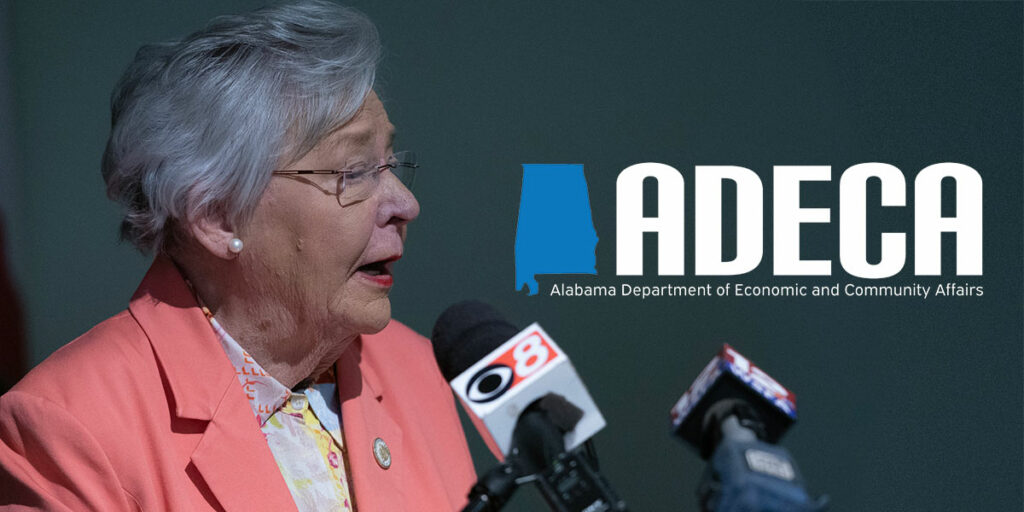If you took a nighttime plane ride across much of the rural South in the early 1900s, you would see nothing but darkness on the ground below because electricity at the time was centered mainly around highly populated areas.
But through federal, state and private sector partnerships, electricity was brought to rural America to light up homes and power the products many of us today take for granted. Life without access to electricity is tough for most of us to even imagine but there was a time not too long ago when many simply did not have it. The same is true today of high-speed Internet access.
Unfortunately, many homes, businesses, and communities in Alabama and across the country, do not have access to this essential 21st century necessity due to lack of broadband infrastructure – which you can think of as the highway that connects individuals and businesses to Internet providers.
But there’s good news for Alabama. While states across the country are scrambling to build out the infrastructure needed to provide their residences with access to high-speed internet, Alabama is serving as an example of how to do it the right way.
Over the past few years, Alabama has been ambitious – and innovative – in the way that it has set the state up to deal with the buildout of broadband infrastructure. Gov. Kay Ivey, the state Legislature, and groups such as the Alabama Rural Broadband Coalition, which includes organizations ranging from Alabama Power to the Alabama Hospital Association, deserve a lot of credit for the success the state is currently seeing on broadband.
Along with Ivey, State Sen. Clay Schofield of Marshall County, and State Rep. Randall Shedd of Blount/Cullman counties deserve accolades for their involvement with this expansion of broadband in our state.
To name a few steps the state has taken, in 2017, Ivey issued an executive order establishing the Alabama Department of Economic and Community Affairs (ADECA) as the
state agency to oversee broadband planning and expansion.
Since 2018, Alabama has invested $64.1 million in state funding through grant awards
supporting 100 projects through the Alabama Broadband Accessibility Fund. The state has
committed to more than $300 million more in state and federal funding for broadband expansion.
In November 2021, ADECA established a new Alabama Digital Expansion Division, which was created through the Connect Alabama Act of 2021. This act also created the Alabama Digital Expansion Authority to work with ADECA to oversee broadband expansion in the state.
In December 2021, ADECA released the Alabama Broadband Map and Alabama Connectivity Plan to guide the state’s efforts and recommend strategies to expand broadband. The map included months of collaborative work and the participation of 57 internet service providers to give a clear and accurate picture of broadband availability in the state down to the address level.
Recently, Ivey awarded a multimillion dollar grant to fund a “middle-mile” broadband network to make statewide broadband service availability a more attainable goal
throughout Alabama.
The grantee – Fiber Utility Network – will use existing fiber infrastructure and new
infrastructure to create a middle mile network that includes almost 3,000 miles of fiber –
including approximately 1,089 miles from electric co-ops; more than 1,000 miles leased from Alabama Power; and more than 500 miles that will need to be constructed. This is a big deal for the state, as more than 300 Alabama cities and towns with populations of less than 10,000 are within 10 miles of the planned path.
As late as last week, a crowning coup to our broadband expansion occurred when it was
announced that the U.S. Treasury has approved $191.8 million to go toward expanding
broadband in the state. This grant will connect 55,000 households and businesses to broadband.
Expanding broadband infrastructure so that all Alabamians have access to essential, high-speed internet is no easy task. It takes time, effort, financial investment and the collaboration of both state and local elected officials, private sector groups and others to successfully build out of the infrastructure needed to get Alabamians connected.
I believe that our state leaders and business community have been able to do that and have set up Alabama as a model for how to get it right when delivering broadband access to its citizens.
See you next week.
Steve Flowers served 16 years in the state Legislature and his weekly column is seen in more than 60 Alabama newspapers. He may be reached at: www.steveflowers.us.













